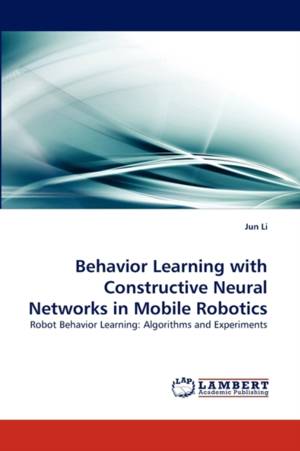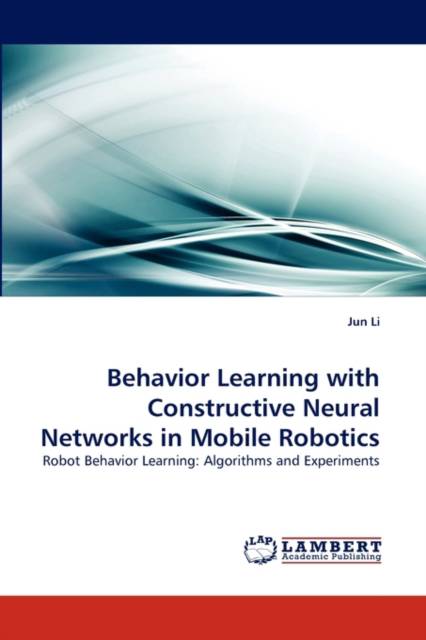
- Afhalen na 1 uur in een winkel met voorraad
- Gratis thuislevering in België vanaf € 30
- Ruim aanbod met 7 miljoen producten
- Afhalen na 1 uur in een winkel met voorraad
- Gratis thuislevering in België vanaf € 30
- Ruim aanbod met 7 miljoen producten
Zoeken
Behavior Learning with Constructive Neural Networks in Mobile Robotics
Robot Behavior Learning: Algorithms and Experiments
Jun Li
Paperback | Engels
€ 58,45
+ 116 punten
Omschrijving
In behavior-based robotics, a robot achieves a required task by using various behaviors as the building blocks for that overall task. A robot behavior in turn is a sequence of sensory states and their corresponding motor actions, and extends in time and space. Making a robot able to learn (or develop) meaningful and purposeful behaviors from its own experiences has played one of the most important roles in intelligent robotics, and have been called the hallmark of intelligence. This book presents a learning system for acquiring robot behaviors by mapping sensor information directly to motor actions. It addresses the integration of three learning paradigms, namely unsupervised learning, supervised learning, and reinforcement learning. The approach is characterized by the use of constructive artificial neural networks, Several novel techniques for robot learning using constructive radial basis function networks are introduced. The learning system is verified by a number of experiments involving a real robot learning different behaviors. It is shown that the learning system is useful as a generic learning component for acquiring diverse behaviors in mobile robots.
Specificaties
Betrokkenen
- Auteur(s):
- Uitgeverij:
Inhoud
- Aantal bladzijden:
- 156
- Taal:
- Engels
Eigenschappen
- Productcode (EAN):
- 9783838380063
- Verschijningsdatum:
- 13/07/2010
- Uitvoering:
- Paperback
- Afmetingen:
- 152 mm x 220 mm
- Gewicht:
- 236 g

Alleen bij Standaard Boekhandel
+ 116 punten op je klantenkaart van Standaard Boekhandel
Beoordelingen
We publiceren alleen reviews die voldoen aan de voorwaarden voor reviews. Bekijk onze voorwaarden voor reviews.











